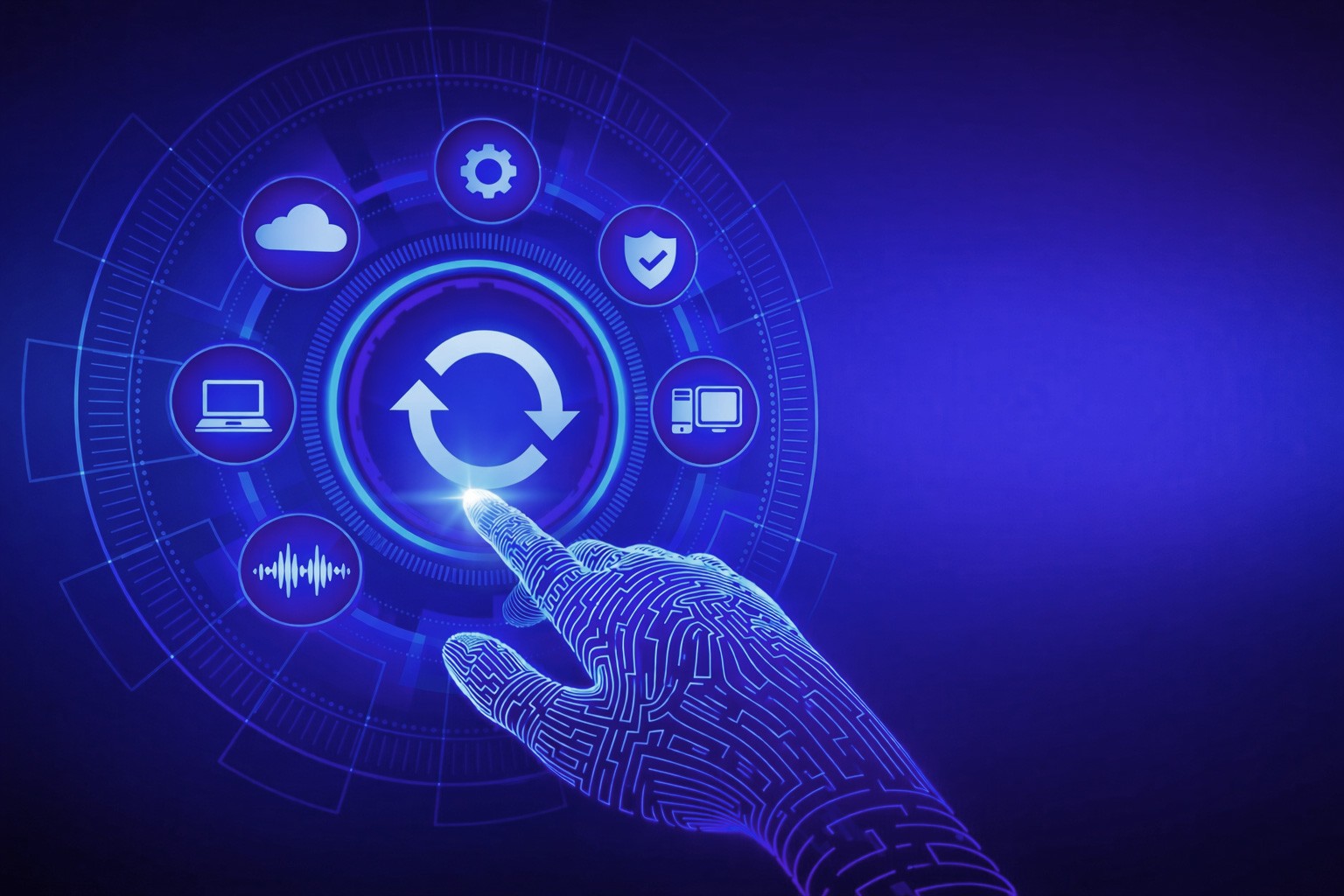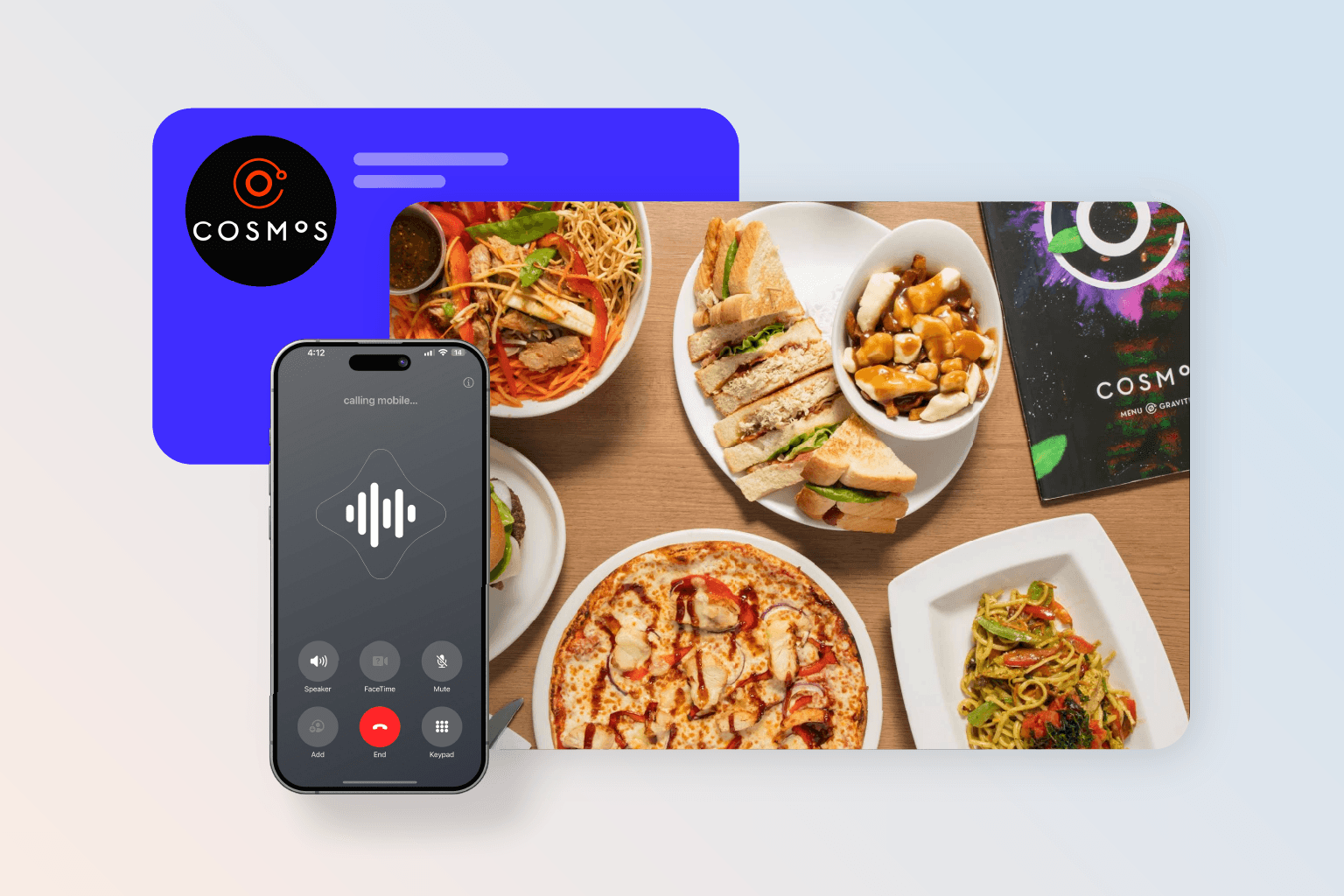Hospitality
Discover how AI is transforming the hospitality industry through personalized customer experiences, intelligent service, dynamic pricing, and operational efficiency. Explore how AI tools enhance performance and elevate the overall guest experience.
The Current State of AI in Hospitality
Hotels, restaurants, and other hospitality businesses are realizing that AI is a powerful ally, not a replacement for human staff. By handling routine tasks, AI allows employees to focus on what they do best: building genuine relationships and delivering high-quality, personalized service that connects on a human level.
Enhancing Customer Service Through AI
Smart Guest Relations
Modern artificial intelligence systems have completely changed the way hospitality companies interact with their customers. Advanced natural language processing allows artificial intelligence to grasp and respond to consumer questions with remarkable accuracy and subtlety. These solutions guarantee that visitors get immediate help irrespective of the time or employee availability since they can manage several languages, grasp context, and offer pertinent information around-the-clock.
Restaurants and hotels that handle a lot of reservations, availability, menu items, and amenities questions find great benefit in artificial intelligence-powered communication tools. These systems reduce wait times, improve customer satisfaction, and they give accurate responses and instant access to real-time information. Solutions such as Sadie demonstrate how AI can act as an intelligent host, managing phone calls, taking reservations, and addressing guest questions, freeing personnel to concentrate on in-venue customer care.
With Sadie, your restaurant or hotel gets an AI-powered host that answers every call, takes reservations, handles guest inquiries, and ensures no opportunity is missed, while your team focuses on in-person guests.
Personalized Recommendations and Services
To provide very customized suggestions, artificial intelligence is great at examining booking history, guest preferences, and behavioral patterns. Based on particular guest profiles, hotels can advise room upgrades, food choices, and local attractions; restaurants can recommend meals, wine pairings, and special experiences catered to consumer tastes and dietary limitations.
This degree of customizing goes past basic recommendations. AI can automatically change room temperature, illumination, and entertainment possibilities in hotels or create custom dining experiences based on previous visits and expressed preferences at eateries, remembering guest tastes across several visits.
Optimizing Management and Operations
Dynamic Pricing and Revenue Optimization
In order to make the best pricing strategies in real time, revenue management systems can be applied which can take into consideration a vast amount of information such as local events, historical booking trends, weather, competitor rates, and demand which are analyzed with the help of AI. It is possible to maximize revenue and occupancy by dynamic pricing of rooms and price the menus and promotional efforts in the restaurants as optimally as possible with reference to the demand trends and inventory levels.
These systems use sophisticated factors including guest lifetime value, seasonal trends, and outside forces impacting travel and food consumption patterns beyond basic supply and demand estimates. The outcome is more intentional pricing that balances market competitiveness with client happiness and profitability.
Supply Chain Management and Inventory Control
Proper inventory control is especially important in hospitality, where waste can have a major impact on profits. Artificial intelligence (AI) systems are remarkably precise in predicting food product and beverage demand, bed linens, and amenities, therefore allowing companies to maintain optimum inventory holdings and reduce waste and backorders.
The use of AI will be able to predict which dishes will be in high demand in restaurants based on previous sales data, weather conditions, local events and seasonal trends. This also ensures high demand products can be on stock all the time, reduces wastage and assists in better food planning.
Schedule Management and Workforce Optimization
By means of examination of past data, projected demand, and employee preferences and availability, AI-powered workforce management solutions improve personnel scheduling. Reducing labor expenses while assuring acceptable service levels, these systems may determine ideal staffing levels for various periods and seasons.
Sophisticated systems even put into consideration the employee skills, qualifications, and performance criteria when setting the schedules to ensure that the right employees are assigned to the right post. Consequences of this are the enhanced customer care, decreased employee turnover, and increased employee morale.
Predictive Analytics and Decision Making
Demand Forecasting
AI-powered predictive science allows hospitality companies to forecast demand with unprecedented accuracy. These systems would have the ability of predicting the level of occupancy, the restaurant traffic and peak serving time weeks/months in advance by analysing past trends, market trends and local events and external factors.
This foresight leads to better resource allocation, more effective marketing, and strategic planning aligned with projected demand. To keep consistent revenue streams, companies can get ready for peak seasons, maximize staffing, and launch focused promotions during slower periods.
Guest Behavior Analysis
AI systems can analyze guest behavior to uncover trends, preferences, and potential issues before they arise. This allows hotels to anticipate which guests are likely to extend their stay, request specific services, or express dissatisfaction—enabling proactive service and timely problem-solving.
Similarly, in restaurants, data insights help identify loyal customers, understand ordering habits, and predict interest in special events or new menu items. These insights support targeted marketing and tailored guest experiences.
Difficulties and Factors to be Considered
Technical Needs and Implementation Costs
Although artificial intelligence provides major advantages, effective deployment calls for significant expenditures in system integration, training, and technology. Though cloud-based artificial intelligence solutions are enabling more access to these technologies, smaller hospitality companies may struggle to justify the first expenses.
Effective artificial intelligence implementation also calls for strong data infrastructure and constant technical assistance. Companies need to make sure they have the required technical ability or collaborations to properly support and maximize their artificial intelligence systems.
Data Security and Privacy
Effective artificial intelligence systems call for a lot of data gathering, which presents significant privacy and security problems. While remaining open with visitors about data gathering and utilization, hospitality companies must establish strong data protection policies and guarantee adherence with privacy laws.
Clear explanation of how personal information is used and protected, along with strong security protocols to guard against data leaks and illegal access, are needed to develop visitor trust.
AI's Future in Hospitality
AI in hospitality is evolving rapidly, enabling advanced applications like AI-driven sustainability management, predictive maintenance for hotel facilities, and natural conversation interfaces that increasingly resemble human interaction.
Emerging technologies such as computer vision and IoT integration will unlock innovative uses we’re only beginning to imagine. For example, restaurants can use AI to optimize everything from ingredient sourcing to table layouts for maximum efficiency and guest satisfaction. Meanwhile, hotels can automatically adjust environmental settings based on guest behavior and preferences, enhancing comfort and personalization.
Conclusion
AI is not just transforming hospitality, it’s redefining how businesses operate, serve guests, and plan ahead. In this industry, AI enables professionals to focus on what matters most: creating exceptional experiences that encourage repeat visits.
By using AI strategically, companies can meet rising customer expectations, boost satisfaction, and run more efficient, profitable operations.
The AI revolution is already in motion. Hospitality brands like Sadie that embrace innovation will lead the way in shaping guest experiences in an increasingly connected world.










